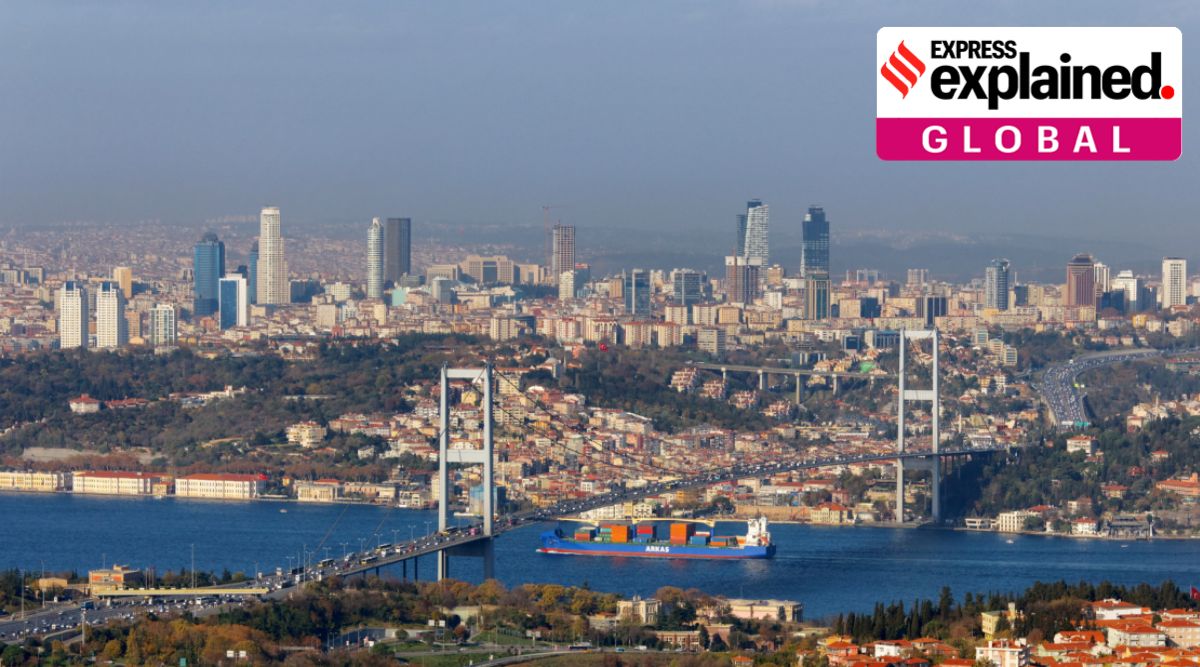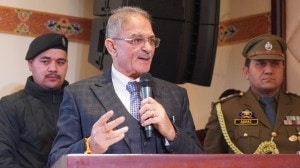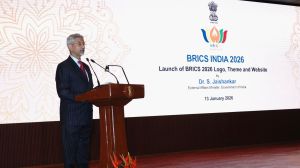Explained: Why Turkey now wants to be called Türkiye
Why does Turkey want to be called Türkiye? What is the government doing to advocate the new name? Have other countries changed their names before?
 Bosphorus Bridge in Istanbul, Turkey. (Source: Wikimedia Commons)
Bosphorus Bridge in Istanbul, Turkey. (Source: Wikimedia Commons)Turkey will now be known as Türkiye at the United Nations, after the intergovernmental body agreed to a formal request for the name change from Ankara. The UN said it had received a request from Ankara this past week, and the change was made soon after. The UN’s acceptance of this name change marks the start of the similar process of adoption by other similar bodies and international organisations.
The process of rebranding the country’s name started last year. In December 2021, the country’s president Recep Tayyip Erdogan issued a statement saying the “word Turkiye represents and expresses the culture, civilisation, and values of the Turkish nation in the best way.”
Domestically, citizens refer to the land as Turkiye, but its anglicised version ‘Turkey’ was adopted internationally.
Why does Turkey want to be called Türkiye?
State broadcaster TRT had published a report last year explaining some reasons why. It said ‘Turkey’ was adopted following the country’s independence in 1923. “Over the centuries, Europeans have referred to firstly the Ottoman state and then to Turkiye by many names. But the name that has stuck most is the Latin “Turquia” and the more ubiquitous “Turkey,” the report said.
But curiously, there were more justifications. Apparently, the country’s government was not pleased with the Google search results that came up for the word ‘Turkey’. Some of these results included the large bird that is served for Thanksgiving and Christmas meals in North America.
The government has also had objections to Cambridge Dictionary’s definition of the term “turkey”; “something that fails badly” or “a stupid or silly person”.
TRT said this unflattering association can be traced back centuries, when “European colonisers set foot in North America, they ran into wild turkeys, a bird that they mistakenly assumed was similar to the guinea fowl, which was native to eastern Africa and imported to Europe through the Ottoman Empire.”
The bird soon found its way to the tables and meals of colonisers, and the association of the bird on these festivals has stuck since.
How is Türkiye tackling it?
The government has started a major re-branding campaign, where “Made in Türkiye ‘ will feature on all exported products. BBC additionally reports that in January this year, the government also launched a tourism campaign using “Hello Türkiye” as the tag line.
But BBC reports that while supporters of the government back the move, it has found little takers outside that circle given the economic crisis that the country is undergoing. It may also be a distraction while the country gears up for elections next year.
Have other countries changed their names?
There are other countries that have changed their names either to drop colonial legacies or rebrand, as is the case with Turkey.
Some examples include The Netherlands, which was changed from Holland; Macedonia, which changed its name to North Macedonia due to political disputes with Greece; Iran, which changed its name from Persia in 1935; Siam, which changed its name to Thailand; and Rhodesia, which changed to Zimbabwe to drop its colonial legacy.
Newsletter | Click to get the day’s best explainers in your inbox
- 01
- 02
- 03
- 04
- 05






































